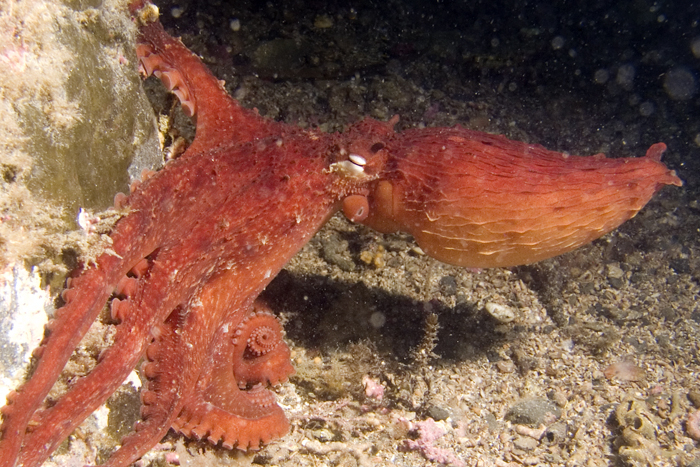
Octopuses on MDMA act like people on the same drug, revealing a new evolutionary connection between the two species.
Researchers studied the gene structure of an octopus species not known for being social, and then tried to record its behaviour to the mood-altering drug MDMA, also knows as Ecstacy.
The researchers said the discoveries might open doors for considering the effect of psychiatric drug treatments in numerous animals that are the distantly related to humans.
Gul Dolen, the assistant professor of neuroscience at the Johns Hopkins University School of Medicine and the lead investigator of the experiment stated: "The brains of octopuses are more similar to those of snails than humans, but our studies add to evidence that they can exhibit some of the same behaviours that we can.
"What our studies suggest is that certain brain chemicals, or neurotransmitters, that send signals between neurons required for these social behaviours are evolutionarily conserved."
A complete summary of these experiments has been published in the journal Current Biology.
Prof Dolen designed an experiment with three associated water chambers: one unfilled, one with a plastic figure under an enclosure and one with a female or male lab-bred octopus in a cage.
Four male and female octopuses were made to intake MDMA by placing them into a receptacle containing a melted version of the drug, which was consumed by the octopuses through their gills.
At that point, they were set in the experimental chambers for 30 minutes.
Each of those four octopuses tended to spend more time in the chamber where a male octopus was caged, as opposed to the other two chambers.
"It's not just quantitatively more time, but qualitative. They tended to hug the cage and put their mouthparts on the cage.
"This is very similar to how humans react to MDMA; they touch each other frequently," Prof Dolen said.
Under ordinary conditions, without MDMA, five male and female octopuses stayed away from the only male caged octopuses.
Prof Dolen said the experiments propose that the brain circuits controlling social conduct in octopuses are present in ordinary conditions, but might be affected by different circumstances.
"Octopuses will suspend their antisocial behaviour for mating, for example. Then, when they are done mating, they go into aggressive, asocial mode," said Prof Dolen.
Prof Dolen states that the outcomes are primer and should be duplicated and attested in other experiments before octopuses can be used as models for brain research.









